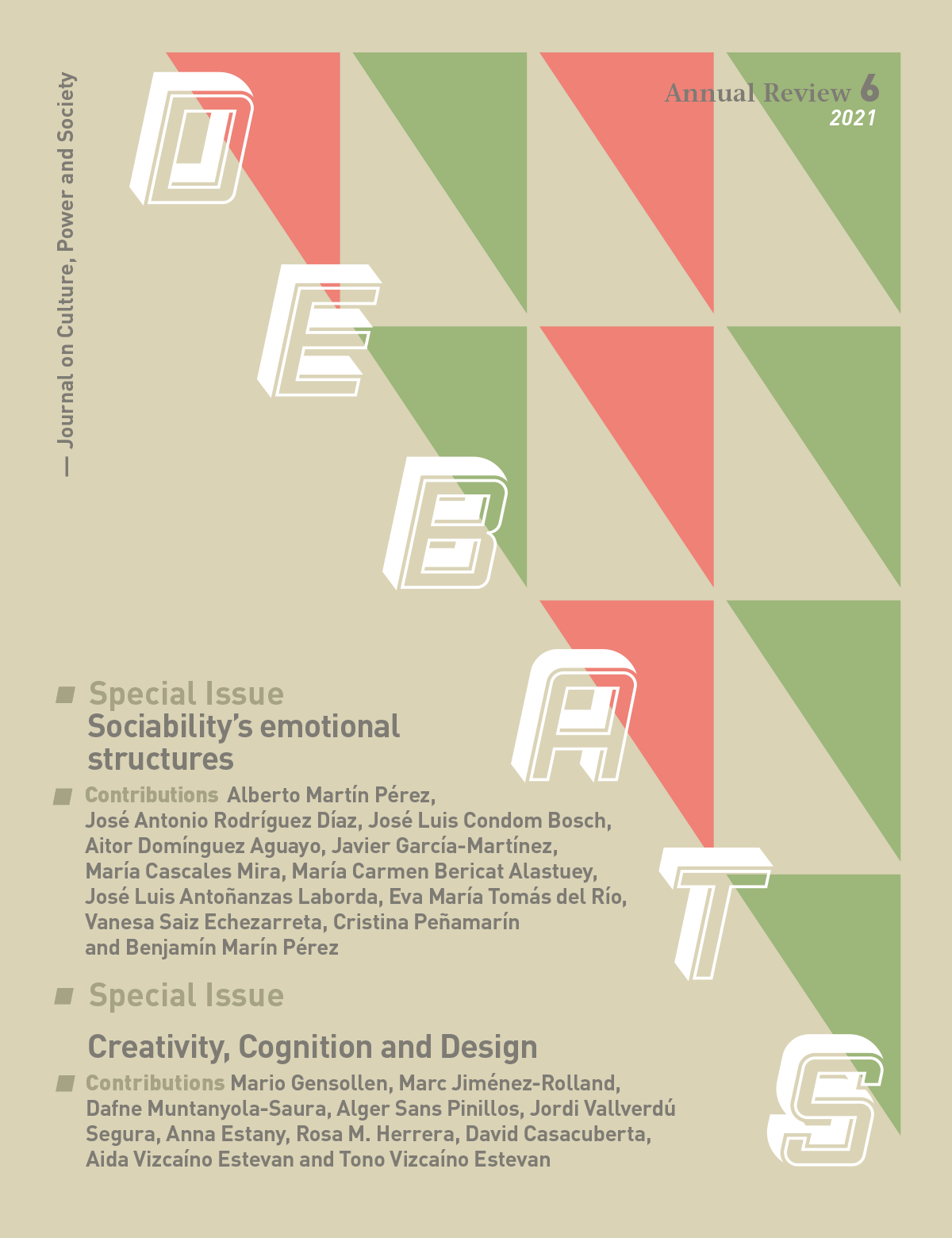Analysis of Affective Discourse in the Change Process of the Employment Relationship Model: Environment Management through Collective Bargaining
DOI:
https://doi.org/10.28939/iam.debats-en.2021-4Abstract
This paper covers research whose goal was to analyse affective changes in the process of change in the labour relations model that was consolidated throughout the 1990s. Based on a case study, the focus was on the emotional content expressed by the protagonists in
relation to this collective bargaining framework. In conducting the analysis, we used the wide range of procedures provided by Discourse Analysis (DA). Part of this analysis focused on the protagonists’ emotional management of the early stages of the negotiation. The results let us delve deeper into the affective nature of this process, thereby expanding the light shed by other theoretical and methodological perspectives on this change in the labour relations model.
Downloads
References
Aglietta, M. (1979). Regulación y crisis del capitalismo. Madrid: Siglo XXI.
Alonso, L. E. and Fernández, C. J. (2013). Los discursos del presente: Un análsis de los imaginarios sociales comtemporáneos.
Madrid: Siglo XXI.
Beck, U. (2001). ¿Qué es la globalización? Falacias del globalismo, respuestas a la globalización. Barcelona: Paidós.
Beck, U. (2002). La sociedad de riesgo global. Madrid: Siglo XXI.
Bericat, C. (2017). Las relaciones laborales. In D. Pac, C. Gómez, J. Bergua and C. Bericat, Sociedad: Economía,
organización y consumo (p. 205-231). Madrid: Delta.
Bericat, C. (2019). La transformación de las relaciones laborales: Fundamenteos teóricos de un proceso de cambio. Zaragoza:
Prensas de la Universidad de Zaragoza.
Bericat, E. (2012). Emotions. Sociopedia, 1-13.
Boltanski, L. and Chiapello, E. (2002). El nuevo espíritu del capitalismo. Madrid: Akal.
Calsamiglia, H. and Tusón, A. (2007). Las cosas del decir. Barcelona: Ariel.
Camps, V. (2011). El gobierno de las emociones. Barcelona: Herder.
Carrier, D. (1988). La estrategia de las negociaciones colectivas. Madrid: Tecnos.
Castells, M. (2000). La era de la información, I: La sociedad red. Madrid: Alianza Editorial.
Fernández Rodríguez, C. J. (2007a). El discurso del management: Tiempo y narración. Madrid: CIS.
Fernández Rodríguez, C. J. (2007b). Vigilar y organizar: Una introducción a los Critical Management Studies. Madrid:
Siglo XXI.
Fernández, I. and Carrera, P. (2007). Las emociones en psicología social. In J. Morales, E. Gaviria and M. Moya,
Psicología social. Madrid: McGraw-Hill.
Gorroño Arregui, I. (2008). El abordaje de las emociones en las organizaciones: Luces y sombras. Cuaderno de
Relaciones Laborales, 26(2), 139-157.
Hochschild, A. R. (2008). La mercantilización de la vida íntima. Madrid: Katz.
Iñiguez Rueda, L. (2006). Análisis del discurso: Manual para las ciencias sociales. Barcelona: UOC.
Kochan, T. A., Katz, H. C. and McKersie, R. B. (1993). La transformación de las relaciones laborales en los Estados
Unidos. Madrid: MTSS.
Martín Artiles, A. (1999). Organización del trabajo y nuevas formas de gestión laboral. In F. Miguélez and C. Prieto,
Las relaciones de empleo en España. Madrid: Siglo XXI.
Martín Artiles, A. (2014). Transformaciones recientes en el modelo de Relaciones Laborales. Anuario IET de Trabajo
y Relaciones Laborales, 2, 1-26.
Mora, J. and Martín, M. (2010). Análisis comparativo de los principales paradigmas en el estudio de la emoción
humana. REME, XIII(34).
Russell, J. (1980). A circumplex model of affect. Journal of Personality and Social Psychology, 39(6), 1161-1178.
Sarries Sanz, L. (1993). Sociología de las relaciones industriales en la sociedad postmoderna. Zaragoza: Mira.
Touraine, A. (2009). La mirada social: Un marco de pensamiento distinto para el siglo XXI. Barcelona: Paidós Ibérica.
Vega, M. L. (2006). Las relaciones laborales en Europa: Principales características y tendencias. Revista Trabajo, 2(2),
-22.
Downloads
Published
How to Cite
Issue
Section
License
Without prejudice to the provisions of article 52 of Spanish Law 22/1987 of November 11 on Intellectual Property, BOE (official state bulletin) of November 17, 1987, and pursuant to said legislation, the author(s) surrender(s) free of charge its rights of edition, publication, distribution and sale of the article, for its publication in Debats. Journal on Culture, Power and Society.
Debats. Journal on Culture, Power and Society is published under the Creative Commons license system in accordance with the «Recognition - Non-Commercial (by-nc) modality: The generation of derivative works is permitted provided that commercial use is not made. Nor can the original work be used for commercial purposes».
Thus, when the author submits his/her contribution, he/she explicitly accepts this assignment of publishing and publishing rights. Authors also authorize Debats. Journal on Culture, Power and Society to include their work in an issue of the journal to be distributed and sold.











